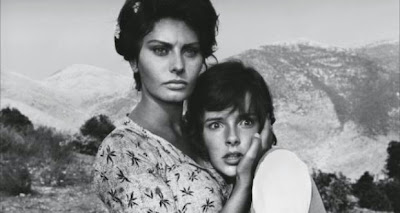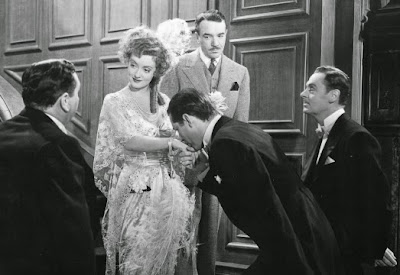Format: DVD from Rockford Public Library on laptop.
What is it with Gary Cooper and Quakers? In High Noon he marries a Quaker and in Friendly Persuasion, he is a Quaker. The most interesting thing about the Quakers isn’t that they eschew music and dancing, but that they are total pacifists. So, naturally in films that involve them as major characters, the entire point is to put them in situations where violence becomes an option and possibly a necessity. That’s certainly the case with Friendly Persuasion.
Jess Birdwell (Cooper) is a Quaker farmer who happens to be married to the local Quaker preacher, Eliza (Dorothy McGuire, who looks rather remarkably like Michelle Pfeiffer). Eliza, as the preacher, is more than a little dedicated to the Quaker ways. Jess, however, is not. There are also temptations aplenty for their three children: Josh (Anthony Perkins), Mattie (Phyllis Love), and Little Jess (Richard Eyer). The film starts as a light-hearted comedy as these four, particularly Jess, strain the limits of Eliza’s good nature by rebelling in minor ways against her Quaker preaching.

























